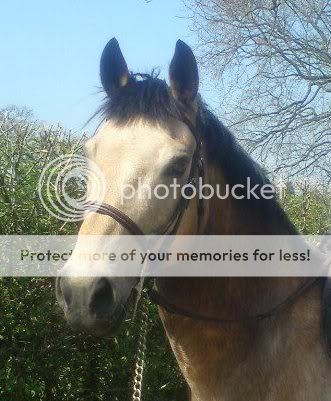I rested him for 3 months but he was still 3/10 lame even on complete field rest

So it was decided that as he hadn't improved at all the best chance we could give him was to go for surgery.
Unfortunately because his ligaments had already healed (just badly!) he wasn't a candidate for shockwave therapy as it is really only usefull with a recent enough injury.
The bills really aren't as horrific as you would expect for the surgery, if anything shockwave treatment is more expensive as they often need several sessions. If I can find my original vets bill I'll be able to tell you exactly what the cost was, most of the expense is actually the drugs and after care though rather than the actual operation.
It's fairly simple keyhole surgery, my boys scars were only about 2" long and now the hair has grown back you wouldn't even know they were there. It IS still an operation though and you have to consider the risks that a general anaesthetic carries.
For me it was well worth it as it has given my boy his quality of life back, when he was suffering with the PSD he was constantly depressed because of the discomfort and be cause he couldn't do any of the things he enjoyed.

Now he is able to enjoy life again, but it was a very long and hard decision and it is not an easy process. If you do go for the operation be prepared for a lot of box rest, walking out and a lot of slow rehabilitation work. It took me a good 12 months before I would say we were coming back into 'normal' work.
I have a chat with your vet and see what he recommends, it is usually the extent of PSD which dictated which is the best course of action. I'm not saying surgery is always the best option, but I know it can seem very extreme and frightening and I wanted to give you my first-hand experience if itrs any use to you in making a decision

Try not to get too down about it, it's horrible to find out your horse is 'broken' but it doesn't have to mean the end of anything. Here's my boy following surgery and learning how to enjoy life again:



